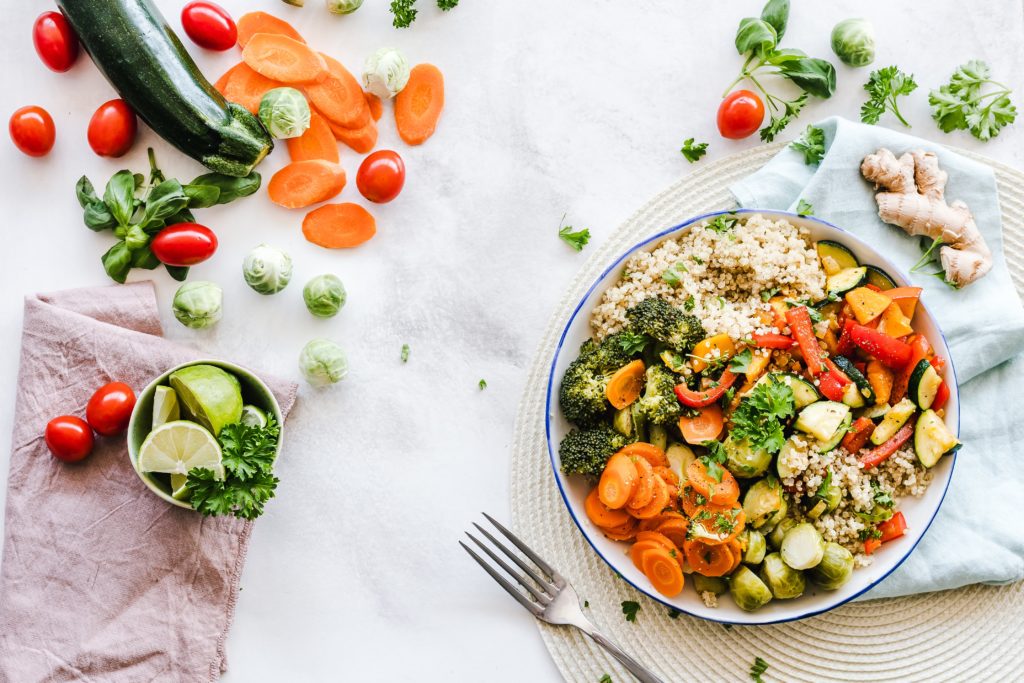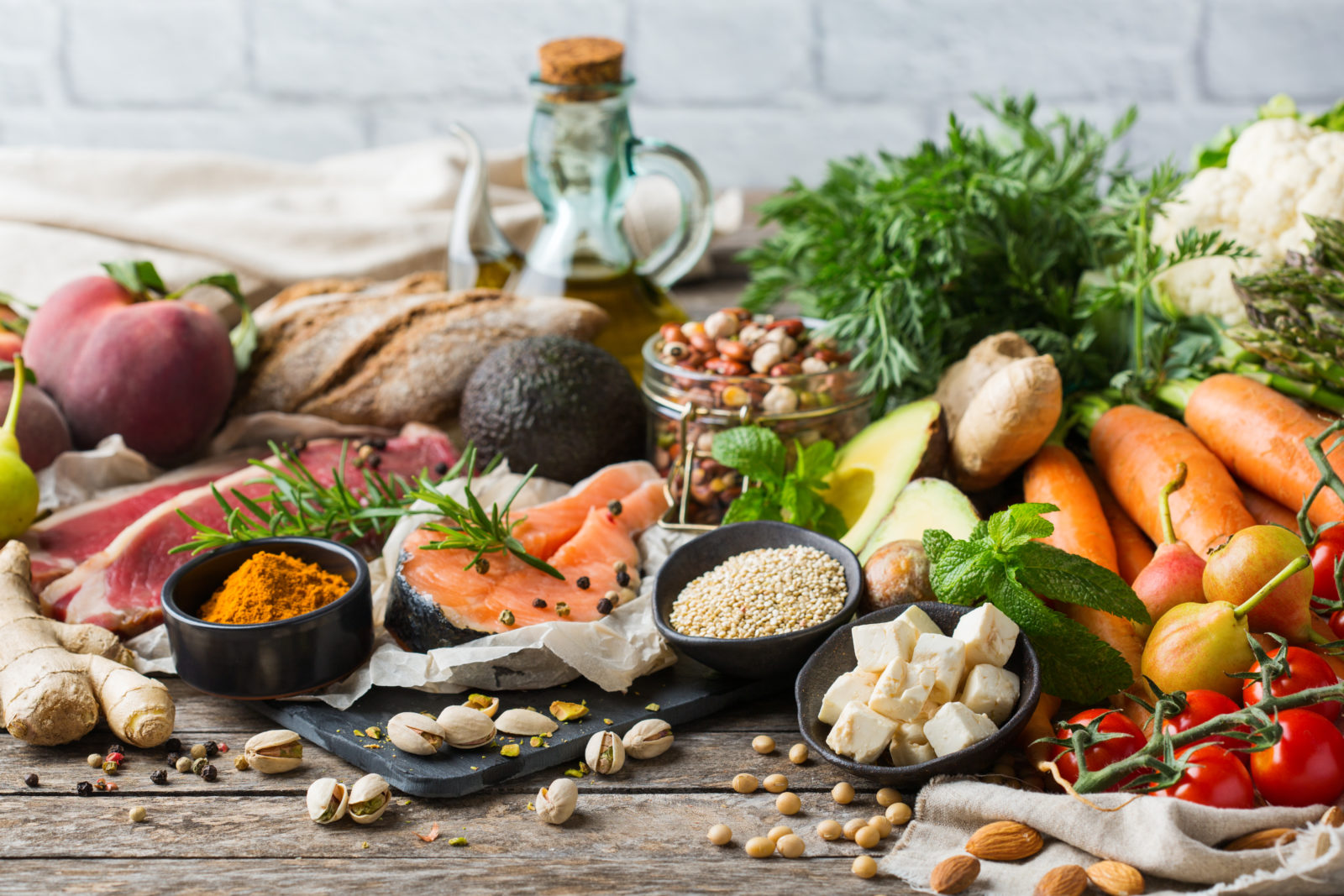A culture of stress eating combined with an environment overflowing with cheap, readily available junk food and lack of activity has made America fatter and unhealthier. Losing just 10 percent of your body weight has been proven to ameliorate many obesity-related health ills. Make no mistake about it, the food you eat is the number one factor in promoting weight loss. You can lose weight on an unhealthy eating regimen but for long term health promotion and weight loss, the ideal diet is a calorie-controlled Mediterranean eating plan. The Mediterranean diet offers a host of health benefits, including weight loss, heart and brain health, cancer prevention, and diabetes prevention. By following the Mediterranean diet, you could also keep that weight off while avoiding chronic disease.
The Mediterranean diet is an age-old plant-based eating regimen that has been practiced in the regions surrounding the Mediterranean Sea. Embracing the Mediterranean lifestyle is all about making simple incremental changes in your eating habits and activity levels. These changes will have a lasting positive effect on your weight, mood, health, and longevity.

What to Eat
Think lots of plants: fresh fruit, green leafy vegetables, whole grains, nuts, beans, peas, lentils, extra virgin olive oil, fish and red wine in moderation. Eat your main meal early in the day. Eat vegetables as the main course drizzled or cooked with olive oil. You should drink water, tea or coffee and wine at the main meal.
Mediterranean diet recommendations are fairly straightforward. The goal is to cut back on the intake of highly processed disease-promoting foods that include an excessive amount of salt, sugar, and bad fats. Authentic extra virgin olive oil is your main fat and counters inflammation in the body—a disease-promoting side effect of obesity. Seafood, especially salmon, tuna, and halibut are your chief sources of heart-healthy omega-3 fatty acids. Vegetarian sources of protein include tofu and tempeh. Beans, peas, and lentils, make up the rest of your lean proteins.
Incorporating a handful of walnuts and some flax seeds or chia seeds. These foods are high in plant-based omega-3 fats and help fight inflammation. The vegetables you consume should be deeply colored green, orange, red and purple colors—visual cues that these foods are chock full of antioxidants. Avoid fiber-less refined grains such as white bread and pasta. Avocados can be used as a spread on whole-wheat bread instead of butter.
What to Avoid
We are besieged by advertising for quick processed foods that are high in bad fats, refined sugars, highly processed vegetable oils, sodium, and other chemically modified foods. The Mediterranean diet is based on whole foods, food from the earth and the sea without excess processing.
Reduce excessive use of salt by seasoning foods with garlic, rosemary, chili powder, citrus fruits, and balsamic vinegar. Seafood, which is rich in omega-3 fatty acids, should be eaten at least 3 times a week. Naturally made dairy products such as Greek yogurt can also be eaten daily.

The Mediterranean Diet Shopping List
Your typical grocery list should include milk or nut and seed milk, yogurt, sour cream, and hard cheese such as asiago (to be used sparingly). Use salt in moderation. In place of excess salt, use plant-based seasonings, such as dill, parsley, rosemary, and basil. Garlic, lemons, aged balsamic vinegar, horseradish, capers, and other seasonings will add a burst of flavor to your foods. For cereal, consider steel-cut oats, and unsweetened shredded wheat. Always use 100% whole-grain bread, pasta, and crackers. Avocado oil is a good substitute for extra virgin olive oil in baking (you can cut the calories when baking by adding applesauce in place of half the oil).
Some versions of this diet allow you to eat red meat and butter in moderation. However, for better health and weight control, you should avoid excessive consumption of red meat. Instead of butter and processed oils look towards extra virgin olive oil as your primary source of fat. It is great to add it to salads and vegetables.
Below is a list of fruits and vegetables that can be added into one’s diet:
Fruits
- Bananas
- Apples, unsweetened applesauce
- Berries
- Grapes (red)—try freezing for a sweet treat
- Mango
- Pineapple
- Melons
Vegetables
- Dark leafy greens (spinach, arugula, red leaf lettuce)
- Tomatoes
- Onions, shallots, chives
- Broccoli
- Carrots
- Peppers
- Asparagus
- Brussels sprouts
- Squash
- Eggplant
- Sweet potatoes
Essential items for your pantry include beans such as chickpeas, black beans, and kidney beans, tahini, herbal tea, coffee, bone broth, flaxseeds, chia seeds, roasted red peppers, popcorn kernels, and extra virgin olive oil. Red wines such as Cabernet Sauvignon, or Pinot Noir are a better option if you choose to occasionally have a drink. Raw cacao powder and chocolate made of at least 60% unprocessed dark cacao and great sweets to keep on hand.
Quick and Delicious Mediterranean Meal Plans
Below is a typical Mediterranean meal plan to help you lose weight without losing taste. Ensure that you walk at least 30 minutes every day.
Meal Plan I
- Breakfast: Cold oatmeal, nut milk, flaxseeds, dried cranberries, kiwi slices
- Snack: Walnuts on Greek yogurt, dried figs, and a natural sweetener if desired
- Lunch: Spinach salad, lentil soup
- Snack: Pear and nuts
- Dinner: Apple carrot salad, pan-seared salmon roasted cauliflower, oven-roasted potatoes
Meal Plan II
- Breakfast: Oatmeal with cinnamon, raisins, and slivered almonds/flaxseeds, cantaloupe
- Snack: Walnuts on Greek yogurt, dried figs, and a natural sweetener if desired
- Lunch: Whole wheat pizza with arugula, eggplant, and caramelized onions
- Snack: Apple, a handful of nuts and seeds
- Dinner: Spinach salad with orange slices and olive oil vinaigrette, steamed fish with black bean sauce, peapods with almonds, brown rice
By subscribing to my website you can learn more about the Mediterranean diet and meal plans.
Supplement With Moderate Daily Exercise
The Mediterranean regimen is about more than just-food. It’s about adopting a lifestyle that includes healthy activities that help reduce stress and every day tensions. Perhaps a walk in nature, painting or even petting your dog. Moderate daily exercise daily can add years to your life and life to your years.
Mediterranean Diet Can Help Reduce Cholesterol
To lower bad cholesterol, it is important to eat the right foods, every day. Try a handful of walnuts and some flax seeds or chia seeds. These foods are high in plant-based omega-3 fats and help fight inflammation. The vegetables you consume should be deeply colored green, orange, red and purple colors—visual cues that these foods are chock full of antioxidants. Avoid fiber-less refined grains such as white bread and pasta. Avocados can be used as a spread on whole-wheat bread instead of butter.
Dr. Janet Brill, PhD, RDN, FAND, LDN is a nationally recognized expert in the field of health, wellness and cardiovascular disease prevention and is frequently sought after by the media as a trusted source of nutrition and fitness information. Janet holds master's degrees in both nutrition and exercise physiology and a doctorate in exercise physiology. Dr. Janet is one of the few worldwide experts on the Mediterranean diet, having been published extensively on the topic in both the scientific and lay press.

